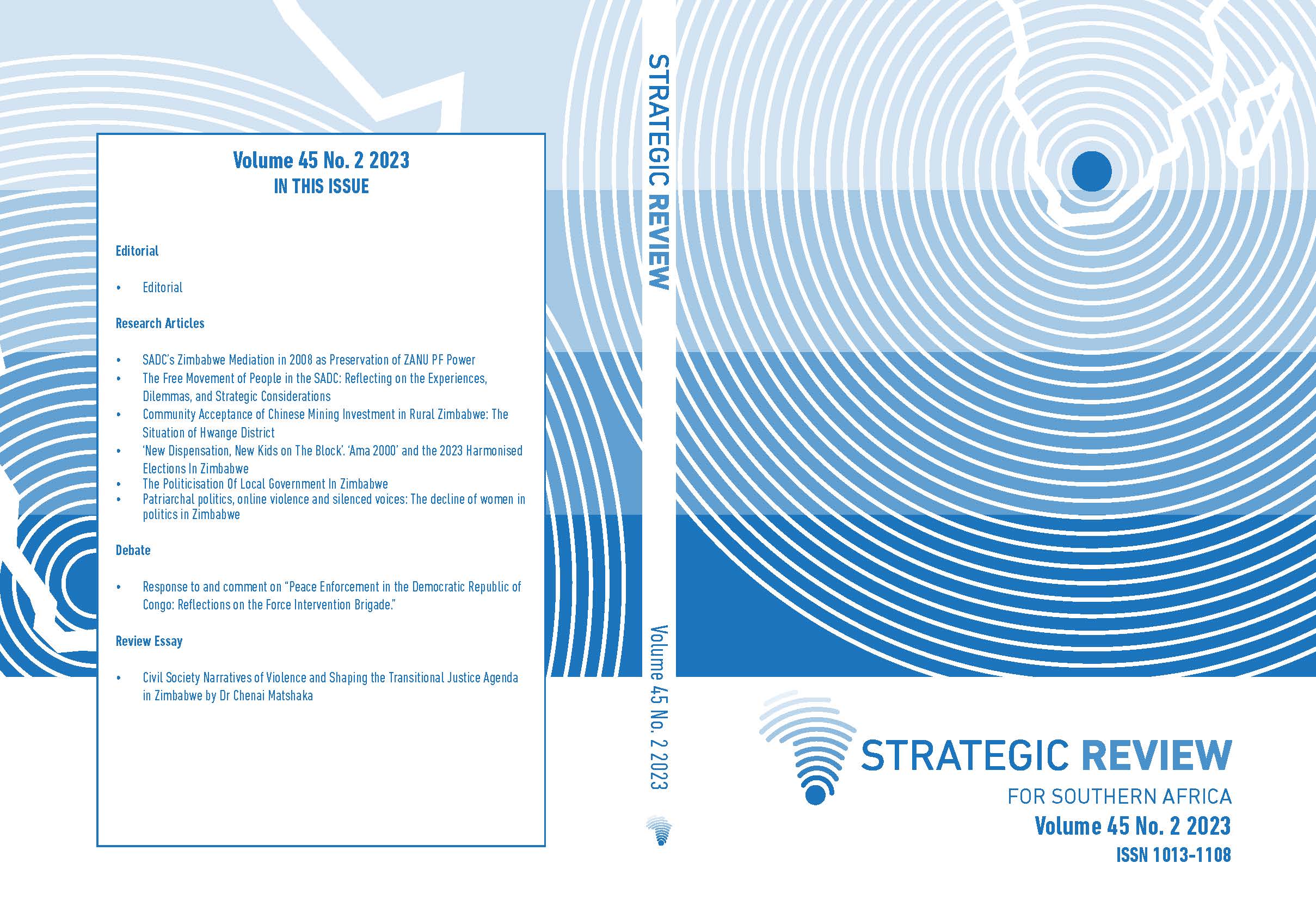The Politicisation of Local of Government in Africa: A Zimbabwean Case Study
Politicisation of Local Government
DOI:
https://doi.org/10.35293/srsa.v45i2.4332Keywords:
Constitution, Local Government, Decentralisation, Devolution, Democracy, ZimbabweAbstract
This article analyses local government politics in Africa using Zimbabwe as a case study. Drawing on the theory of participatory democracy, it argues that throughout Africa the politicisation of local government has often hamstrung the sector’s ability to provide citizens with basic services. The political scene in Zimbabwe changed drastically in the year 2000 with the formation of the Movement for Democratic Change (MDC). The party threatened the ruling Zimbabwe African National Union-Patriotic Front (ZANU PF)’s political dominance and this resulted in on-going conflict, with the ruling party using its power at central government level to frustrate the opposition that often dominated local government. Several events such as the clean-up operation in 2005 and the 2008 cholera outbreak in Zimbabwe were indicative of a governance system that had been politicised, with negative effects on citizens’ lives. A watershed moment occurred in 2013 when a new constitution was introduced and for the first time since independence, local government was recognised. One of its key tenets is devolution of power to local communities. However, due to the polarised nature of politics in Zimbabwe, very little has been done to implement this principle, as the ruling party regards devolution as a threat to its political influence. The article argues that creating and fostering a democratic society in Zimbabwe will ensure that devolution is implemented, and that citizens will have a say in how their communities are governed.


